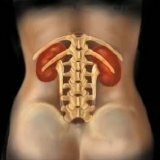Diseases of the urinary tract

The urinary system consists of the kidneys, bladder, ureters and urethra, all these organs can be exposed to various types of infections. Diseases of the urinary tract can be caused by various factors, information about which we picked up in our publication.
Uremia
Uremia is a condition after a poisoning of the body by products to be removed with urine and retained in the blood and tissues in case of renal insufficiency. With real uremia, nitrogenous slags accumulate in the blood and tissues. This painful condition occurs as a result of a violation of the main function of the kidneys - isolation of waste products of nitrogen metabolism.
Azotemic uremia is observed with far-reaching renal lesions, namely their vascular apparatus - glomeruli and arterioles, moreover diffuse.
The clinical picture of uremia is very rich in symptoms. Before others, there are disorders of the digestive apparatus. Appetite is lost, especially to protein foods, and in the late stage, patients refuse to eat, only drink a lot of liquid.
Nephritis
Acute diffuse nephritis is a common infectious-toxic vascular disease with a primary lesion of the kidneys, namely their glomeruli.
In the etiology of acute diffuse nephritis, a significant factor is streptococcal infection. The nephritis is usually preceded by streptococcal angina.
Cystitis
Cystitis is a medical term that determines inflammation of the bladder. In the vast majority of cases, inflammation is caused by a bacterial infection and is considered an infectious disease of the urinary tract. Infection of the bladder is very painful and causes irritation. The disease can become a major health problem if the infection spreads to the kidneys. Less commonly, cystitis may occur as a reaction to some drugs - potential irritants or radiation therapy, such as feminine hygiene products or long-term use of a catheter. Cystitis can occur as a complication of another disease. Usually antibiotics are prescribed to treat bacterial cystitis. The main signs and symptoms are: strong and persistent urination, burning sensation when urinating and pressure in the lower abdomen, blood in the urine, discomfort in the pelvic area.
In young children, new episodes of accidental wetting( enuresis) can also be a sign of a urinary tract infection. Symptoms of urinary tract disease in children are incontinence at night, and during the day or only during the day.
Bladder cancer
The causes of bladder cancer are unknown. Like any cancer, it can be fatal for some patients, depending on the stage of cancer, when the diagnosis was made. Bladder cancer occurs when the tumors form in the bladder. If a patient develops unexpected and uncaused blood in the urine, it is necessary to consult a doctor, as this is one of the main symptoms of bladder cancer. When bladder cancer is diagnosed, treatment with radiotherapy or chemotherapy is used, which is used to kill cancer cells.
Kidney tuberculosis
Kidney tuberculosis develops as a result of the introduction of tuberculosis sticks through the blood from other foci, often from the lungs. The primary focus in this case can be very insignificant and little active. Frequent manifestations of the disease are pain in the kidney area, usually blunt, prolonged, but sometimes resembling renal colic. The study of the kidneys determines the increase and tuberosity of them, as well as soreness. The general condition of the patient remains good for a long time, but in the later stages anemia and weight loss develop. If the medication fails to produce results, the affected kidney can be removed. Tuberculosis in some cases can affect the bladder.
Problems with prostate
When the prostate gland in men becomes enlarged and exerts pressure on the urethra, then this condition is called benign prostatic hyperplasia. Prostatitis( inflammation of the prostate gland) is one of the conditions causing men to frequent and painful urination in men.



